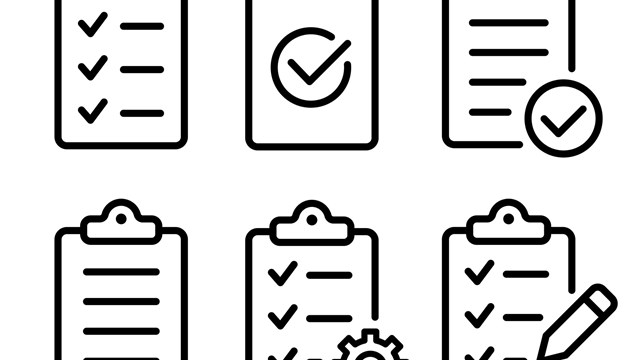It's a profound story of how reserve funds can go seriously awry—within months of buying an apartment in a new New York City building, David and all his new neighbors were informed that they would have to contribute out-of-pocket to help build the co-op's reserve fund. Each shareholder would have to pony up a month's worth of additional fees—which for David meant over $1,000. Final total: the residents coughed up around $45,000 to put aside just in case something went wrong.
To make matters much worse, instead of making smart investments and having excess funds for unexpected repairs, David's board went on a spree with the collected funds, spending $8,000 on new roof furniture, $100 on weekly flower deliveries, $8,000 on a wood cabinet to hold deliveries, and more than $11,000 to paint the lobby.
After this disaster, the board was ousted, and a new one voted in. The new board had to clean up the fiscal mess left behind by the old one, so they promptly increased monthly fees by 12 percent and assessed everyone again, forcing residents to contribute another extra month of fees.
Of course, David's building is an extreme case. But in today's economic times with increasing insurance premiums, expensive repair projects, and rising taxes, it's inevitable that sooner or later, just about every co-op, condo, or HOA development will have to increase the amount residents pay every month to keep the association up and running. Or do they?
Extreme Measures
Sure it's an easy method of generating revenue, but financial experts regularly point out that there is more than one way to raise cash when you need it, and even more ways to save money. Perhaps it's time for your association to review its methods of budgeting and look for more creative ways to add to the reserves instead of always hitting up residents for fees, assessments, and increases.
First, like any consumer looking to get out of debt or save money, associations need a set of clearly defined financial or budgeting goals. To determine what those goals are, it's important to conduct a reserve study.
"A reserve study is done by an engineer," says Jules Frankel, a certified public accountant with Wilkin & Guttenplan, P.C., a firm that services about 650 condos, co-ops and townhomes. "And it helps to determine how much an association should be setting aside each year in a separate replacement fund that would cover the replacement and repair of common elements."
"The physical analysis determines what components the association is responsible for, the cost to replace the components, an estimate of how much useful life the item has left, and how much money is set aside to date," Frankel continues. "The financial analysis takes those factors into consideration and calculates how much money needs to be put aside."
Once a figure has been determined, the board can develop ways to raise that money. Raising monthly assessments is the most common solution, but if the association needs the money immediately—and it is not there—the regular assessments will not come in fast enough to raise the needed funds.
A special assessment could be implemented if the board needed money to suddenly replace a defective heater or roof. For example, if the cost of a new furnace was $10,000 and there were 100 owners, each owner would be required to pay $100 toward the new one—unless the assessment is based on the percentage of shares that each owner has in the association. Although the governing legal documents of an association authorize the board to impose a special assessment in such circumstances, it's not something that can be done frequently without raising understandable ire amongst residents.
Other Options
Another revenue opportunity that is becoming more common in New Jersey is the realty transfer fee, which in New York City is often called a flip tax. This fee is imposed on cooperative apartments by a cooperative corporation, and now more condos are starting to use this as a revenue-generator as well. The tax, which is usually a percentage of the purchase price, is either paid by the seller or the purchaser. Flip taxes are often unpopular among residents at first, and figuring the percentages can sometimes be a complicated issue, but done correctly they can raise much-needed dollars.
"New or increased fees are also being charged for different services," says David Sugar, a partner in Arnstein & Lehr LLP in Chicago who concentrates his practice in the representation of condominium and common interest community associations. "Including non-refundable fees for move-ins ands move-outs, sublets, and pet registration, to name just a few. Boards also seem to be imposing more and larger fines for rules violations."
Getting Creative
These methods are fairly typical, but don't overlook other possibilities, says Frankel, including renting out unused or available common property. "Certain communities are allowing non-members to come in and use their golf courses—but of course it depends on where the property is located."
Associations might also consider renting vacant parking spaces, community centers or halls that could be used to hold parties or meetings for local businesses. High-rise buildings can also generate income by renting out roof space for cellular phone or cable dish antennas to telecom companies who will pay the association to use the space.
And there are still other possibilities HOAs can explore but rarely think of, according to author and financial consultant Tom Peric, who says every condo association needs a newsletter or newspaper—and that such publications can sometimes translate into revenue.
"Every condo group or association is a community, regardless of one's involvement level," says Peric. "A newspaper or newsletter allows you to become better informed about what people are doing, how they think, and the nature of their interests. This allows you to have a better sense of how you might view and vote about issues that directly relate to your condominium or—put simply—your investment."
But starting a newspaper or newsletter for the residents doesn't have to be just about sharing the latest baby or wedding news or listing upcoming meetings. It can also be a viable way to raise extra money for the reserves by soliciting local advertising.
To get started finding advertisers, Peric recommends asking where your residents shop—and starting with those stores. With this information, approach those stores and "be sure to show the demographics of the condo to potential advertisers, especially if it's an upscale [neighborhood]."
Jim Farrell, president of PR First in Hanover, Massachusetts, agrees that this may be a profitable opportunity and explains that ad rates are based on circulation—and more specifically targeted circulation.
"I would persuade advertisers that although the circulation is small, an HOA or condo community is a targeted audience," says Farrell. "Approach advertisers with specific services that condo users might need, such as travel agencies, house cleaners, food delivery services, and upscale delivery services [such as dry-cleaners]. If it is a small circulation publication, consider offering exclusivity to a category of business, possibly for a higher premium. For example, if an ad sold for $100 per insertion to a pizza delivery service and the company wanted to 'lock out' other pizza parlors, the association could charge a higher rate for that advertisement."
Peric also suggests getting members to participate by writing for the newsletter or newspaper and calling the local newspaper and telling them what you're doing. "It will pique interest in the community and get attention from would-be advertisers."
The Other Side of the Coin
But like every coupon-cutter knows, you don't just look at how to raise extra cash to help pay the bills, you also learn how to save the money you have now.
"In order to defray high labor costs for full-time maintenance personnel," says Sugar, "some boards are now charging residents for minor handyman-type services provided by the building's maintenance staff—e.g., cleaning clogged toilet, repairing leaky faucet—that had previously been provided without charge."
Sugar also explains that in his Chicago-based associations, boards are using a variety of strategies to help reduce the common charges for owners.
For example, he says, "In condominium associations whose declarations allow charge-backs for the cost of maintaining limited common element facilities—like repairing balconies in a high-rise where not every unit has one—boards are increasingly exercising their right to charge those costs only to the units benefitted by the repairs. They're choosing not to handle the costs as a common expense," says Sugar.
"Boards have also become more aggressive about requiring that unit owners pay for damage to common element areas originating from their units or caused by their pets or renters," Sugar continues. "Common element damage during move-ins and move-outs is a prime target, as is damage resulting from overflowing bathtubs or leaky plumbing fixtures in high-rise condos."
No Free Lunch
Frankel says the most important thing to remember even if your assessments aren't raised, is that there is no such thing as a free lunch.
"It's the same way people expect raises every year at work and you expect utility, food, and insurance prices to go up—the cost of maintenance assessments are going to go up."
However, Frankel explains that most smart associations will raise maintenance fees slightly every year rather than doing a zero percent increase for several years and then address a crises with a sudden double-digit increase.
"Most associations should incorporate an inflationary increase into their budget every year—and it depends on each association as to what the percentage should be," says Frankel. "If an association gets into trouble, they should have a plan to get out of trouble. For example, if it snows heavily, causing the association to run at a deficit [because of the high cost of snow removal], prudent associations will do a special assessment on residents who are using the services now, rather than shifting the deficit onto future homeowners."
However an association chooses to fortify their reserves, these creative ideas—renting out space, starting a newsletter, and the rest—are ongoing ways to generate additional monthly income. And what's the worst that can happen from having too much money in reserves—satisfied residents?
Lisa Iannucci is a freelance writer living in Poughkeepsie, New York.







Comments
Leave a Comment